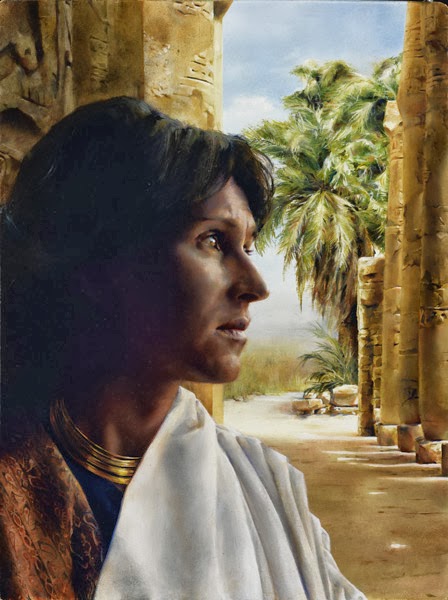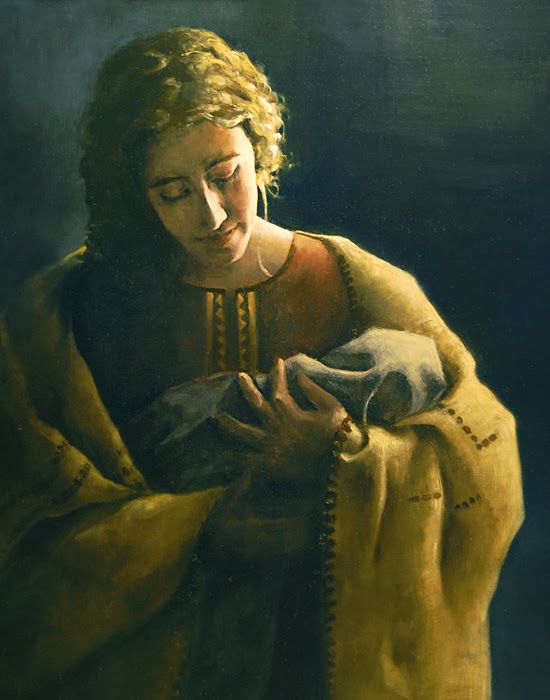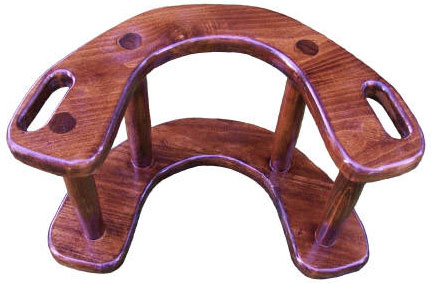Background: 13 Century BC
Not long after the children of Israel settled in the land of Egypt there arose a Pharaoh who did not know Joseph of Egypt and who was concerned that the Hebrews were “…fruitful… and waxed exceeding mighty; and the land was filled with them.” (Exodus 1: 1-7) In fact, they were becoming more numerous and stronger than the Egyptians and this scared the Pharaoh. So in order to try to curb the population and to make sure that they wouldn’t go to war against them, the Egyptians enslaved the children of Israel and put hard taskmasters over them. (Exodus 1:7-11) But even under these hard circumstances the Hebrews continued to multiply, even more than they had before. Concerned with the ever increasing numbers of Hebrews and scared of the potential threat they presented, Pharaoh commanded that all Hebrew males be killed at birth. (Exodus 1: 12-22)
Facts about them:
- They were midwives who attended the births of the Hebrew women (Exodus 1:15);
- They were brought before the Pharaoh who told them that when they went to deliver the baby of a Hebrew woman and saw them “upon the stools” (referring to birthing stools– which I have more information on further down) they were to kill the baby if it was a boy but let it live if it was a girl (Exodus 1:16);
- Despite the Pharaoh’s command they feared God and refused to kill the boy babies (Exodus 1:17);
- When Pharaoh found out that they were disobeying him and not killing the boy babies he called for them and asked why they were saving the boys alive (Exodus 1:18);
- They told Pharaoh that they were unable to kill the babies “…Because the Hebrew women are not as the Egyptian women; for they are lively, and are delivered ere the midwives come in unto them.” (Exodus 1:19);
- The Pharaoh believed their excuse and the people of Israel multiplied and grew stronger (Exodus 1:20);
- Because they feared God over man, God “delt well” with the midwives and blessed them with “houses” or in other words, posterity (Exodus 1:21).
- Puah means “splendid” in Hebrew and Shiphrah means “brightness”.
Speculations about them:
- It is unclear whether Shiphrah and Puah were Hebrew or Egyptian and if they were “Hebrew midwives” or “midwives to the Hebrews.” Most likely they were Hebrew because their names are Semitic, not Egyptian. But either way, one gets the idea from the scriptures that they attended both Hebrew and Egyptian births because they were able to give the Pharaoh a comparison ( Exodus 1:19) and tell him that the “…Hebrew women are not as the Egyptian women; for they are lively, and are delivered ere the midwives come in unto them.” Also, the fact that Pharaoh called for them shows that they were held in high respect (as most midwives were) among the Egyptians and the Hebrews, probably as a result of their great skill and experience.
- It is only logical, given the size of the Hebrew population, that Puah and Shiphrah were not the only midwives attending births. In fact we read in Numbers 1:46 that when the children of Israel left Egypt there were 603,550 men who were over the age of 20 years old. Many of these men were probably saved by midwives who refused to kill them as babies. The large number of men also indicates that the midwives were organized and that perhaps there was a wide scale organization that helped save and hide male babies. No matter how they did it, it is impressive that they were able to save so many babies and keep it a secret from the Pharaoh.
- Some scholars say that midwives in Israel were always barren women, who in order to find their place in a society where family was valued above all else, were given the responsibility of helping other women bring life into the world. If this is true then it makes the fact that God gave them “houses” or “posterity” as a reward for their faithfulness an even more beautiful blessing.
- They may have been the midwives who attended the birth of Moses and consequently saved his life. Moses was the one who wrote the book of Exodus and it is probable that the reason we know their names and so much about them is because he was grateful to them for sparing his life as a baby.
- In the Jewish Women’s Archive Mayer I. Gruber wrote this about birth stools:
The Hebrew term for “birth stool” in Exod 1:16, obnayim, means literally “two stones.” It refers to the primitive form of the birth stool, which was simply two bricks (or stones) placed under each of the buttocks of the woman in labor. Such birth stools are depicted in the later forms of the hieroglyphic symbol for “birth” and are referred to in ancient Egyptian folk sayings, such as “He left me like a woman on the bricks.” Ancient Egyptian pictorial art shows that the two bricks were replaced by a chair with an opening in the middle (like a toilet seat) through which, with the help of gravity, the mother could push out her baby into the deft hands of the midwives.
The Hebrew word “obhnayim” (birth stool) is also used in Jer 18:3, and there it is translated as “potter’s wheel.” The word is used in both places in the dual form, which suggests that both the potter’s wheel and the birth stool were made from two discs. (NetBible, 2005-2009) I found it VERY interesting to go back and read Jeremiah 18 again and read the passage with the thought that “potters wheel” might also be referring to giving birth and it really changed my whole perspective on the passage.
Here is a modern day birth stool. It is used in the second stage of labor (pushing) and helps support the woman while she squats, making pushing easier and more effective. In biblical times a woman probably would have had two other women to support her arms while she squatted and then the bricks or stones would have gone under her bottom. But the general idea is still the same as this.
And just for the sake of being interesting, here is a link to some pictures of types of birthing stools women have used throughout history.
My Thoughts:
Righteous women of God have always chosen, and always will choose, to conceive, deliver, and protect life above all else. This is because righteous women understand the value of life and of its importance in God’s eternal plan. They also know that each life, male and female, is sacred to God and that to bring life is one of the most noble and sacred callings God has given on this earth. Righteous women also understand that without women who are willing to bear, deliver and raise children none of God’s plans could come forth. Without their courage and sacrifice there would be no hope for a future and no purpose for the present.
It may appear that it is always the men in the scriptures who always do the delivering out of bondage, the saving, and the rescuing, but the truth is that God’s plans usually start with women. For example, without the courage and dedication of Puah, Shiphrah, and other midwives like them who chose to ignore the commands of the Pharaoh and do what they knew was right, Moses would not have survived to lead the children of Israel out of bondage. In fact, one could say that these women were the “first delivers” of Israel because they delivered the deliverer.
Because of these righteous women’s decision to put their faith in God and to do what was right, even though they knew there would be serious consequences if the Pharaoh found out what they were doing, God was able to work a mighty miracle for all the children of Israel. True, their part in the deliverance of Israel may not appear to be as grand as what Moses did (and it has yet to be turned into a movie– even though I think it would make a good one:) but without them God’s plans would not have been able to move forward. I am sure that they understood God’s will and knew that if they put their trust in God then they did not need to fear what man could do to them.
What we can learn from them:
- Righteous women of God will always choose to conceive, deliver and protect life above all else;
- When we put God above man and do what is right, regardless of the consequences, He blesses us and helps us work miracles;
- If we trust in the Lord we don’t have to fear what the “world” or “man” can do to us;
- Women deliver the deliverers.
Questions to think about:
- Why do you think Moses mentions these two midwives by name?
- What modern day parallels do you see in this story?
- How do you or women you know take a stand to protect and deliver life?
- Why do the midwives choose to obey religious authority rather than political authority?
- How is being blessed with “houses” or “posterity” a great blessing?







Very insightful Heather Lady! I loved it. I certainly hold midwives in high respect and love to see how their actions help God do his work.
I was intrigued by your thought provoking question about following political and religious leaders. This is because I think that a lot of good and bad has been done in the name of patriotism and also religion. What it comes down to is knowing if commands come from God. When it comes to saving lives, I believe this is a divine commandment.
Thanks again for the intriguing post. Keep up the good work. 🙂
I am starting a study on Moses next week on my blog, I may use some of your thoughts…if I do I will be certain to quote back to you. I see lots of your historic info to be similiar to what I have researched and found as well, but I like what I assume are your words that say these women were the "deliverers of the deliverer"
Amy 🙂
Thank you for your post! I have been asked to be Shiphra in our Relieft Society Birthday Celebration tonight. Love the women in the scriptures!!
i loved this post and learning about these women. lifelong member of the church and scripture reader, but i'd never heard of these women. i know this post is a few years old, but i just discovered your site! fyi, some of the links are now broken 🙁
I have never in my 40 years of life heard of Shiprah and Puah. I am very grateful to read about these two women and their bravery in keeping the precious babies alive. How this shows our God's love and compassion, he and his angels must have been very happy and full of joy.